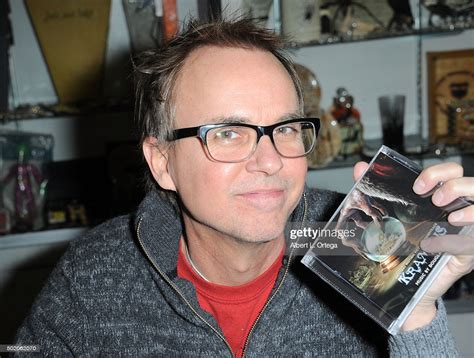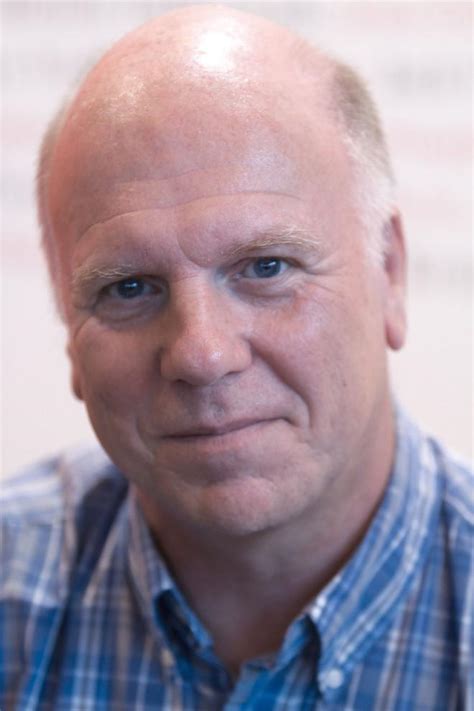A Quote by Lev Grossman
More than fantasy or even science fiction, Ray Bradbury wrote horror, and like so many great horror writers he was himself utterly without fear, of anything. He wasn't afraid of looking uncool - he wasn't scared to openly love innocence, or to be optimistic, or to write sentimentally when he felt that way.
Related Quotes
I think readers appreciate those of us who stay in the trenches and fight the good fight even when times get tough. I know that I, personally, lost respect for writers who, when there was a downturn in the market, started shouting from the rooftops that they wrote thrillers and suspense novels rather than horror. As far as I'm concerned, those wussboys should sever all ties with the horror community if that's the way they feel and get out of the way so real horror writers can do their work.
The truth is that Trout, like Vonnegut and Ray Bradbury and many others, writes parables. These are set in frames which have become called, for no good reason, science fiction. A better generic term would be 'future fairy tales'. And even this is objectionable, since many science fiction stories take place in the present or the past, far and near.
I really wish that peoplewould just say, 'Yes, it's a comic. Yes, this is fantasy. Yes, this is Science Fiction,' and defend the genre instead of saying, 'Horror is a bit passe so this is Dark Fantasy,' and that' s playing someone else's game. So that's why I say I'm a fantasy writer and to hell with 'It doesn't read like what I think of as a fantasy'. In that case what you think of as a fantasy is not a fantasy. Or there is more to it than you think.
The definition of horror is pretty broad. What causes us "horror" is actually a many splendored thing (laughs). It can be hard to make horror accessible, and that's what I think Silence of the Lambs did so brilliantly - it was an accessible horror story, the villain was a monster, and the protagonist was pure of heart and upstanding so it had all of these great iconographic elements of classic storytelling. It was perceived less as a horror movie than an effective thriller, but make no mistake, it was a horror movie and was sort of sneaky that way.
I've been fortunate in that the films I've worked on in the horror genre are themselves not pure horror, and have allowed me to write in a wide variety of styles. Those scores contain elements of fantasy, drama, action, comedy... really all types of scoring, and that gives the horror moments more impact. As for scoring the horror moments, I do like approaching the music from the psychological aspect, scoring to the characters' thoughts, emotions, motivations and such.
I used to write my own versions of famous tales, such as William Tell or Robin Hood, and illustrate them myself, too. When I entered my teens, I got more into horror and science fiction and wrote a lot of short stories. A literary education complicated things and for many years I wrote nothing but poetry. Then I got back to story-telling.
It [horror genre] never dies. It just keeps getting reinvented and it always will. Horror is a universal language; we're all afraid. We're born afraid, we're all afraid of things: death, disfigurement, loss of a loved one. Everything that I'm afraid of, you're afraid of and vice versa. So everybody feels fear and suspense.
Science fiction is fantasy about issues of science. Science fiction is a subset of fantasy. Fantasy predated it by several millennia. The '30s to the '50s were the golden age of science fiction - this was because, to a large degree, it was at this point that technology and science had exposed its potential without revealing the limitations.







































